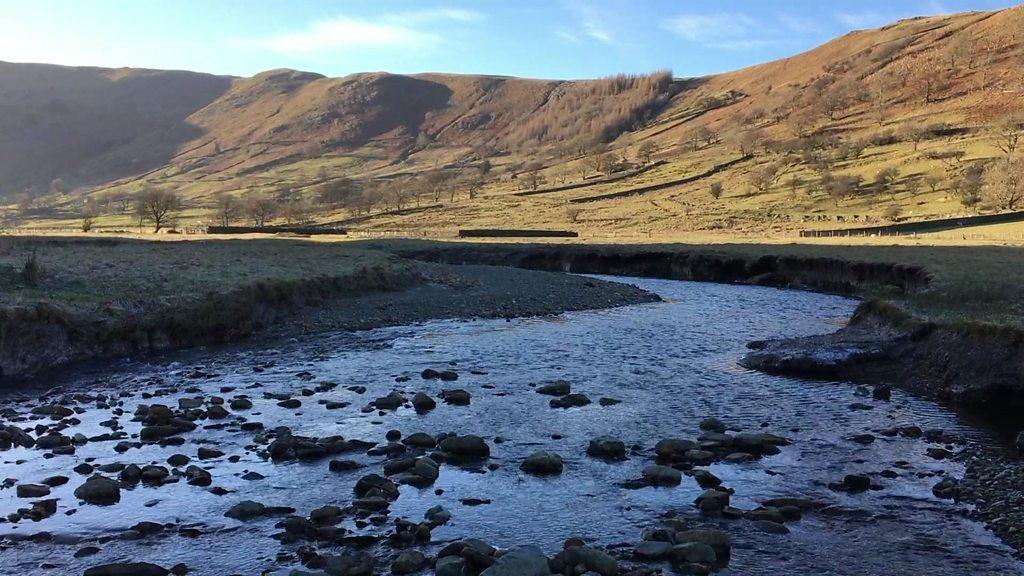Haweswater nature reserve manager steps down after 'burn out'
- Published
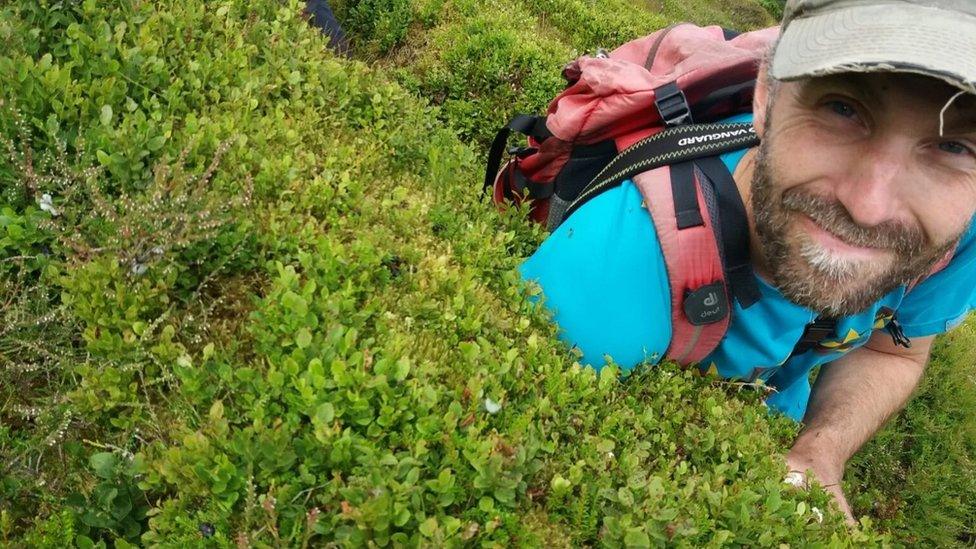
Lee in his "natural habitat" among the bilberry and heather at Haweswater
A nature reserve manager who suffered a mini-stroke is hanging up his boots after 11 years of saving salmon and re-meandering rivers.
Lee Schofield, who is based at Haweswater, said the decision had been "agonising" but he was "burned out".
The 44-year-old said writing his book, Wild Fell, in the early hours, then being on his feet all day had taken its toll.
He will now work at Lowther Estate part time and concentrate on his writing.
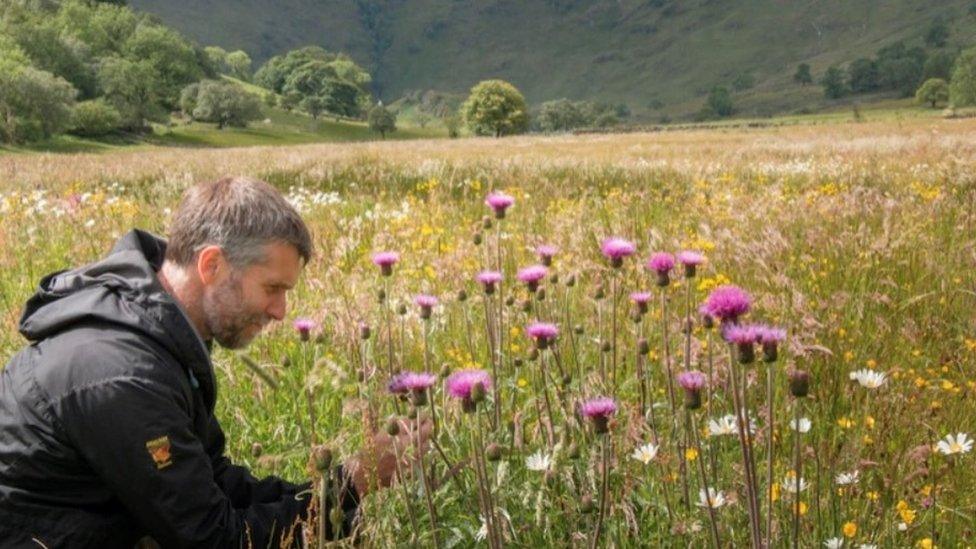
Lee Schofield surveying the melancholy thistle in Swindale hay meadows
Mr Schofield said writing the book had generated £200,000 in donations for the RSPB from readers and he was "immensely proud".
"Working for the RSPB at Haweswater has genuinely been the experience of a lifetime, and I've been agonising about what to do for the past few months," he said.
"My burning drive to help nature and the climate is what gets me out of bed in the morning.
"Being one small player in a growing environment movement is hugely invigorating and, as frightening as the prospects of the climate and biodiversity crises are, I remain hopeful that we can pull ourselves back from the brink."

Mr Schofield's book Wild Fell generated more than £200,000 in donations for the RSPB
He said being among the bilberry and heather at Haweswater was his natural habitat and he is soon to move to a farm next to the nature reserve, and will commute to his new job.
In his final blog before starting his new role in the next few weeks, Mr Schofield said he was moved by more than 140 comments from well-wishers., external
He said career highlights have included helping hay meadows return to "flowery richness" and seeing grouse return to recovering heathlands.
In 2016, the RSPB and its partners, including the water company United Utilities, embarked on a re-meandering or "rewiggling" project at Swindale Beck - a stretch of river close to Haweswater Reservoir in the Lake District.
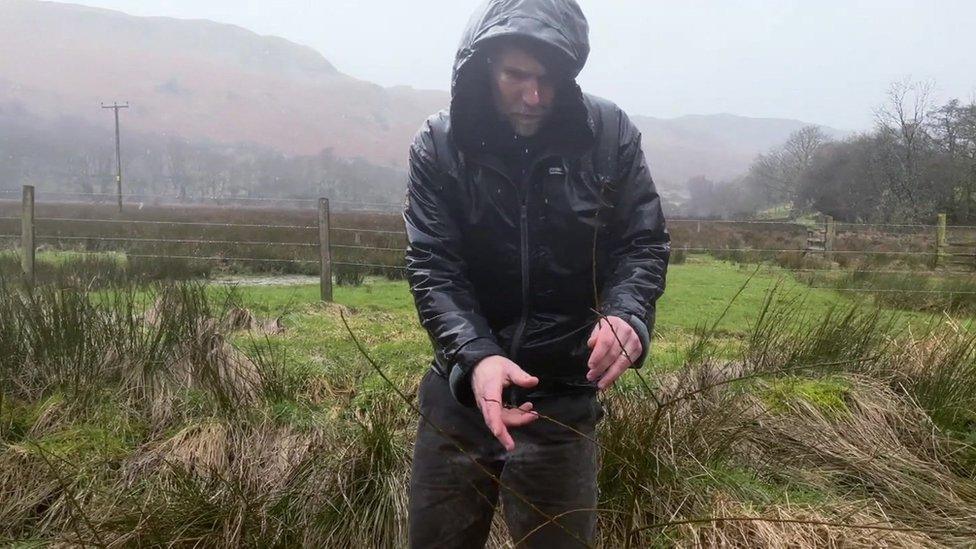
The nature reserve manager said he loved being out in all weathers, but juggling writing and a demanding role had taken its toll
Mr Schofield, who was heavily involved in the project, said re-establishing the meandering curves of the beck had slowed down the flow of water encouraging fish to return.
"We put the bends back in at the beck, we've done huge amounts of bog restoration, we've brought flowers back to big chunks of meadow, we've planted thousands and thousands of trees.
"We've done a huge range of things working with Natural England and United Utilities that I think have really helped to breathe life back into the natural environment."
In his new role, Mr Schofield will work for three days a week for the Lowther Estate on a new project to create a swathe of land from Penrith to Kendal where nature can thrive.
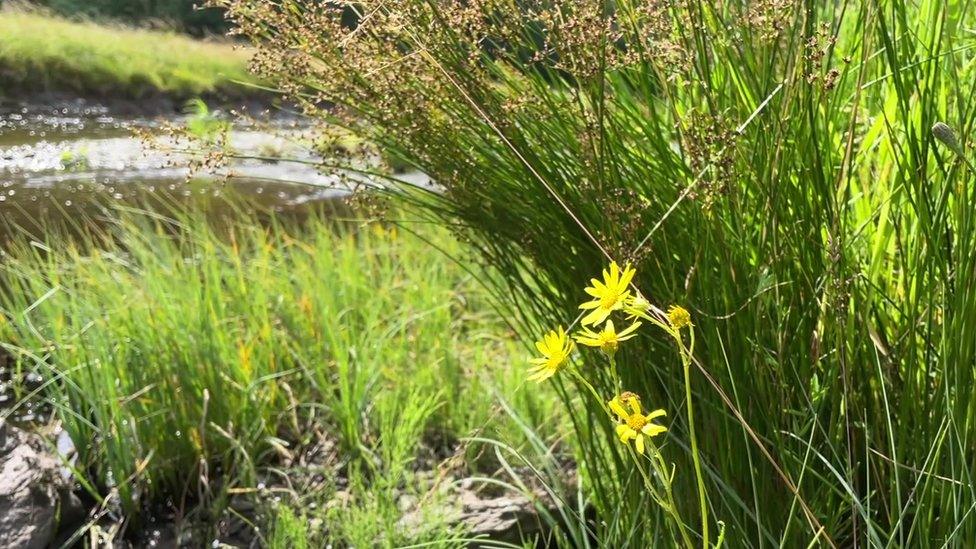
Projects over the years have included bringing flowers back to "huge chunks" of meadows
He said having a mini-stroke just before his book was published in February 2022 was a wake-up call, and he now wanted a "sensible" work and life balance.
"I reduced my hours for the RSPB for a couple of months to get the book finished, but for the rest, I was working full time.
"A mini-stroke was an indicator of how burned out I was.
"For the sake of my health and my family, that's not something I want to repeat."
He said that he wanted to "write more", and added: "I'm hoping to change behaviours so we can tackle the environmental emergencies we are facing."
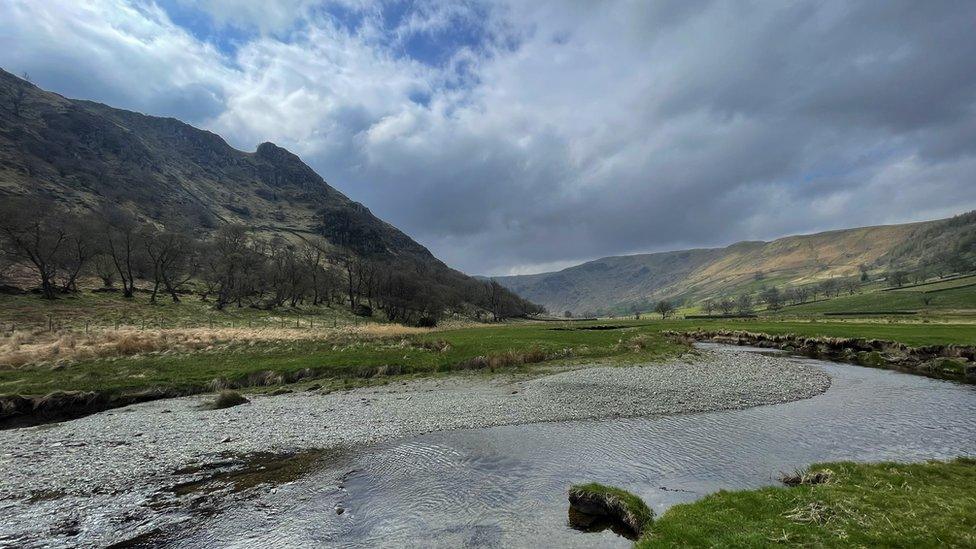
Fish have returned to Swindale Beck after it was "rewiggled"

Follow BBC Cumbria on Facebook, external, X (formerly Twitter), , externaland Instagram, external. Send your story ideas to northeastandcumbria@bbc.co.uk, external.
- Published2 February 2024
- Published19 October 2023

- Published17 August 2023
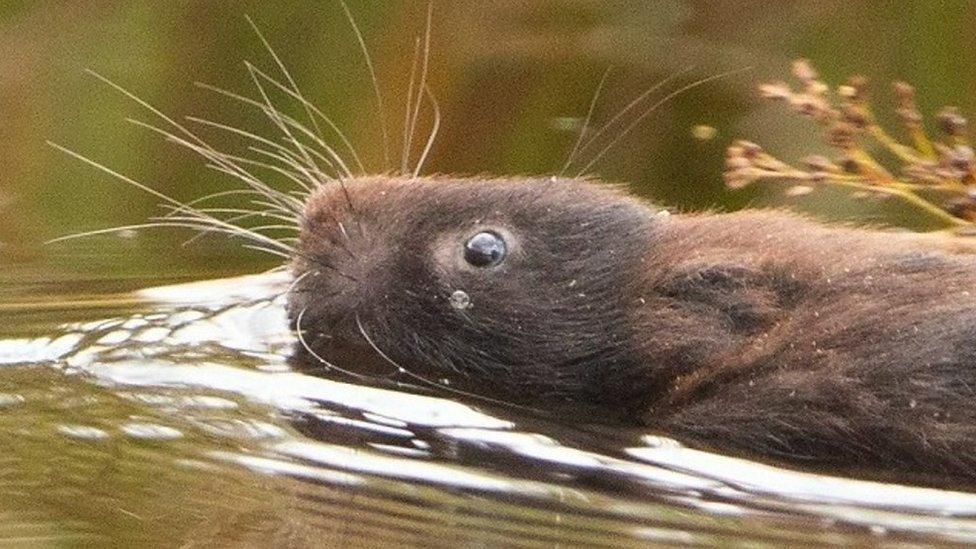
- Published25 April 2023
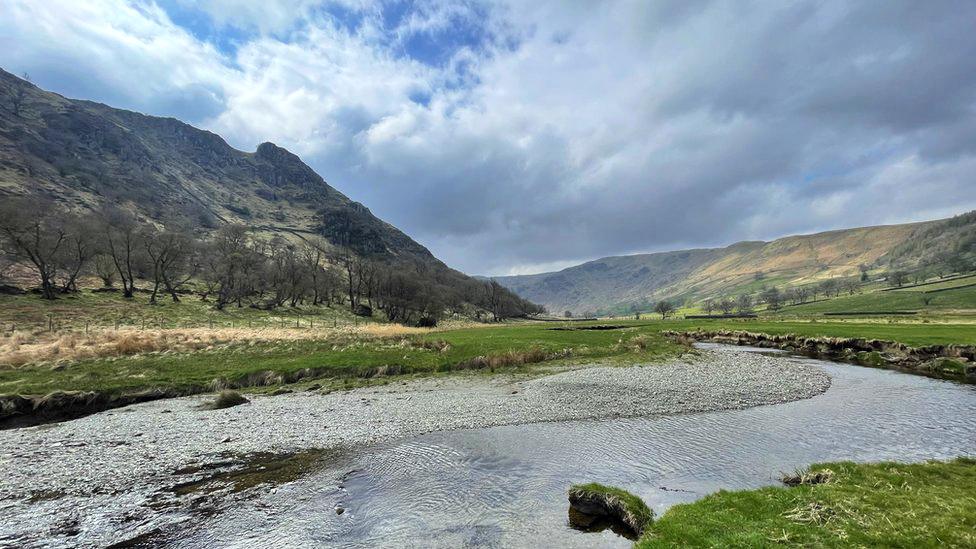
- Published6 January 2017
